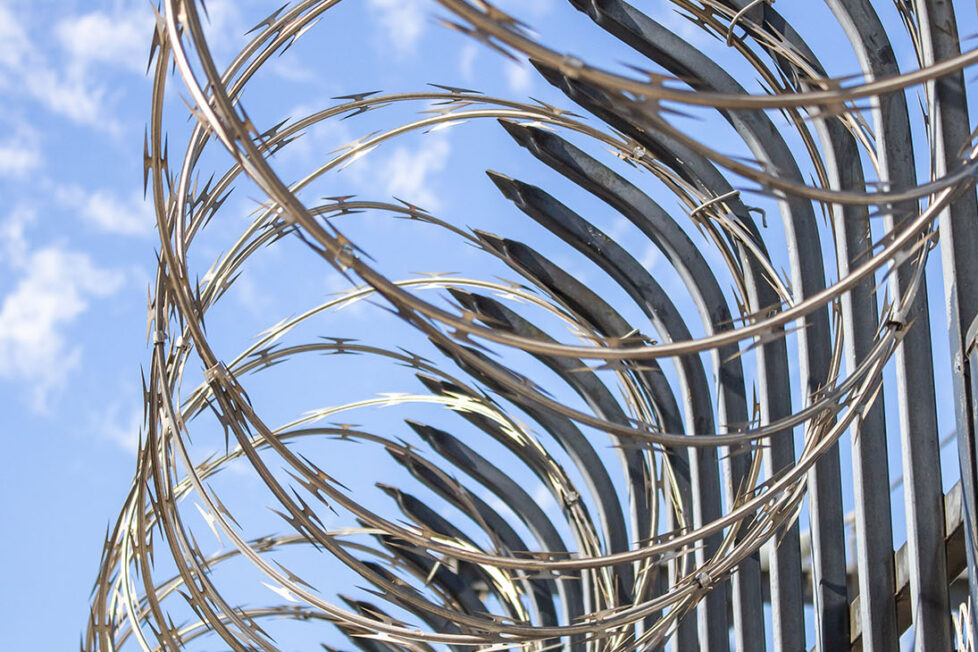House, Senate pass legislation to lower cost of inmate telephone calls


By: Stacy M. Brown / NNPA
In 2017, Reesy Floyd-Thompson, who calls herself a “digital wonder woman,” said she had to deal with the shame of the incarceration of a significant other.
Her husband’s incarceration also meant that calling him would be difficult, if not impossible.
“I used to maintain a side hustle to take care of these calls alone. My husband and I used to endure monthly bills as high as $500 to stay connected,” said Floyd-Thompson, who headed an organization called “Prisoner’s Wives, Girlfriends, and Partners,” a support group for spouses and partners of those incarcerated.
Exorbitant telephone call rates have historically made it almost impossible for loved ones to keep in touch with family and friends behind bars.
With rates as high as $20 per call in some areas, Congress has finally acted, and in 2023, inmates and family members will pay a lot less.
Both the House and Senate passed the Martha Wright-Reed Just and Reasonable Communications Act, which gives the Federal Communications Commission (FCC) the authority to guarantee reasonable charges for telephone and video calls in correctional and detention facilities.
[SCROLL BREAK!!! Bayou Beat News can also be found in PRINT at a store near you. Click the link below to check out our E-Edition!]
“Too many families of incarcerated people must pay outrageous rates to stay connected with their loved ones,” FCC Chairwoman Jessica Rosenworcel remarked in a statement.
“This harms the families and children of the incarcerated — and it harms all of us because regular contact with kin can reduce recidivism.”
The measure now heads to President Joe Biden for his signature.
Phone calls in prison are said to generate more than $1.4 billion per year, and the FCC previously capped rates.
A federal court, however, overturned new regulations that set rates at .25 cents per minute in 2017.
Even though a three-judge panel at the United States Court of Appeals for the District of Columbia agreed that the rates for in-state prison calls were way too high, they said the FCC went beyond its authority when it set rate caps.
“This actually undermines a key goal of prisons, which is to foster rehabilitation to foster successful reentry,” Dr. Melissa Hamilton, a senior lecturer of law and criminal justice at the University of Houston Law Center, said at that time.
“Charging a high fee for phone calls discourages communication between prisoners and those who may be best able to keep prisoners calm and focused while in prison and who may be able to provide opportunities to prisoners upon release,” Hamilton said.
“These are friends, family, and religious connections. We know from decades of correctional research studies that prosocial contacts and opportunities are important mechanisms for rehabilitation and reentry.
“To the extent that the programs reduce these interpersonal contacts, not only are prisoners worse off. It can be detrimental to family members themselves, particularly children,” she said.
African Americans comprise about 13 percent of the U.S. population, and they also make up 35 percent of inmates.
According to a U.S. Department of Justice report, approximately 37 percent of the 2.2 million male inmates are Black.
“The astronomical fees are predatory and perpetuated by the phone companies and prisons, creating a mini-monopoly,” D.C. Democratic Delegate Eleanor Holmes-Norton said.
She said that the profits from the calls are sometimes shared with sheriff’s offices, who say they use the money for security needs.
A strong social support network is an essential tool in reducing re-offending, mainly for drug-related crimes, said Matt C. Pinsker, a former prosecutor, and magistrate who’s an adjunct professor of criminal justice at Virginia Commonwealth University.
“I find the high cost of phone calls concerning. Anything that limits one’s opportunity to be better connected with family is cause for concern,” Pinsker said.
“I have had numerous cases where clients, especially indigent ones, were unable to talk to loved ones because they had no money on their accounts,” he said.
Former FCC Commissioner Mignon Clyburn challenged the high rates, calling them a civil rights issue that prevents inmates from connecting with the nearly 3 million children in America with at least one parent in prison.
“It’s the greatest form of regulatory injustice I have seen in my 18 years as a regulator in the communications space,” Clyburn said.
